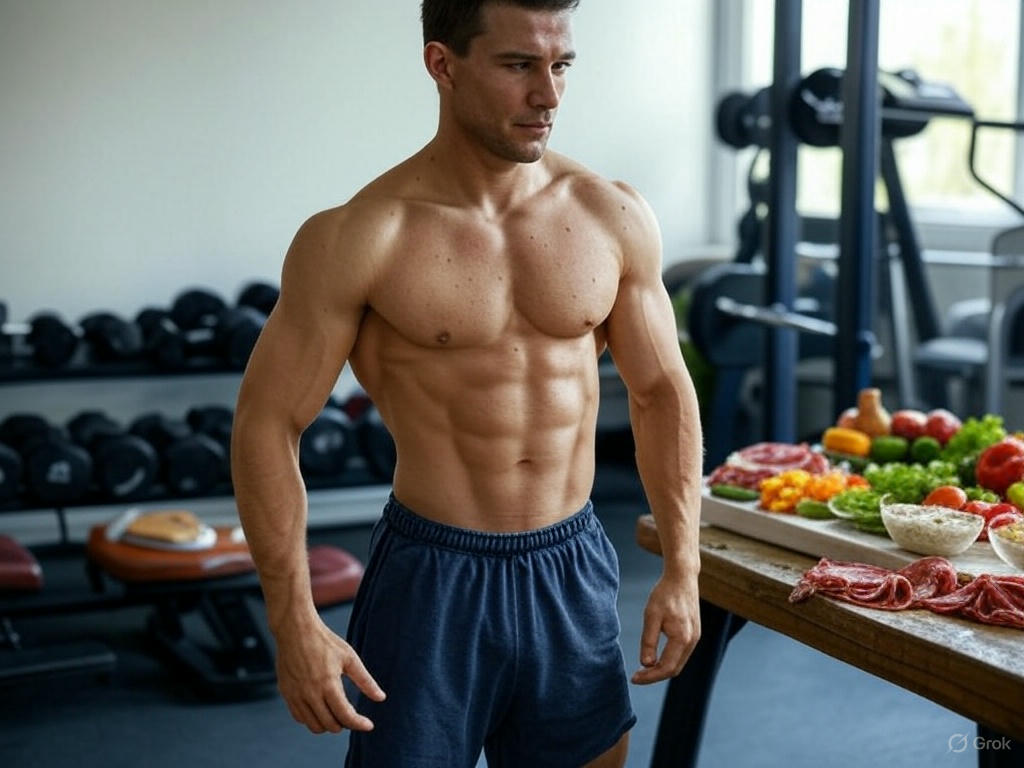Diet plan for men to lose weight
Maintaining a balanced diet is essential for men's health, impacting energy levels, muscle growth, and overall well-being. This blog provides a comprehensive guide to creating a diet plan tailored for men, including sample meal plans, healthy snack ideas, and tips on hydration and exercise.
Techno solution

Diet Plan for Men to Lose Weight: A Complete Guide to Shedding Fat and Staying Fit
Losing weight is more than just cutting calories—it’s about making sustainable lifestyle changes. For men, a well-structured diet plan can accelerate fat loss while maintaining muscle mass and energy levels. This guide provides a comprehensive diet plan tailored for men who want to lose weight effectively and sustainably.
Understanding Weight Loss for Men
Weight loss occurs when you burn more calories than you consume. However, not all weight loss is equal. The goal is to reduce body fat while preserving lean muscle mass, ensuring a fit and healthy physique.
Key Factors in Weight Loss:
-
Caloric Deficit: Consuming fewer calories than you burn.
-
Macronutrient Balance: Proper intake of proteins, fats, and carbohydrates.
-
Meal Timing: Eating at the right times to maintain energy and metabolism.
-
Hydration: Drinking enough water to support digestion and metabolism.
Best Diet Plans for Men to Lose Weight
1. High-Protein Diet
A high-protein diet helps in preserving muscle mass and promoting fat loss. Protein keeps you full for longer and boosts metabolism.
What to Eat:
-
Lean meats (chicken, turkey, fish)
-
Eggs and egg whites
-
Greek yogurt
-
Cottage cheese
-
Plant-based protein (tofu, lentils, chickpeas)
2. Low-Carb Diet
A low-carb diet reduces insulin levels, making your body burn stored fat for energy.
What to Eat:
-
Non-starchy vegetables (broccoli, spinach, bell peppers)
-
Healthy fats (avocado, nuts, olive oil)
-
Lean proteins (chicken, turkey, salmon)
3. Intermittent Fasting
Intermittent fasting (IF) cycles between periods of eating and fasting, helping men burn fat more efficiently.
Popular IF Methods:
-
16/8 Method: Fast for 16 hours, eat within an 8-hour window.
-
5:2 Method: Eat normally for 5 days, restrict calories for 2 days.
4. Mediterranean Diet
A heart-healthy diet that focuses on whole foods, healthy fats, and lean proteins.
What to Eat:
-
Whole grains (quinoa, brown rice, whole wheat bread)
-
Fresh fruits and vegetables
-
Healthy fats (olive oil, nuts, seeds)
-
Lean proteins (fish, chicken, beans)
Best Foods for Weight Loss
-
Eggs: High in protein and keep you full longer.
-
Leafy Greens: Low in calories and high in fiber.
-
Salmon: Packed with protein and healthy omega-3s.
-
Nuts: Rich in healthy fats and protein.
-
Green Tea: Boosts metabolism and burns fat.
-
Apple Cider Vinegar: Helps control blood sugar and reduces appetite.
Meal Plan for Weight Loss (Example)
Breakfast:
-
Scrambled eggs with spinach and whole-wheat toast
-
Black coffee or green tea
Mid-Morning Snack:
-
Greek yogurt with nuts
-
Handful of berries
Lunch:
-
Grilled chicken breast with quinoa and steamed vegetables
-
A side of avocado
Afternoon Snack:
-
Almonds and a protein shake
Dinner:
-
Baked salmon with asparagus and sweet potatoes
Post-Dinner Snack (Optional):
-
Cottage cheese with flaxseeds
Exercise and Weight Loss
A proper diet should be complemented by an effective workout routine. Strength training and cardio exercises accelerate fat loss and maintain muscle mass.
Recommended Workouts:
-
Strength Training: Weightlifting, resistance exercises.
-
Cardio: Running, cycling, swimming.
-
HIIT (High-Intensity Interval Training): Short bursts of intense workouts with rest periods.
Common Mistakes Men Make When Losing Weight
-
Skipping Meals: Leads to overeating later.
-
Relying Only on Cardio: Strength training is essential.
-
Not Drinking Enough Water: Dehydration slows metabolism.
-
Eating Processed Foods: Focus on whole, nutrient-dense foods.
Conclusion
Losing weight is a journey that requires a balanced diet, regular exercise, and a sustainable lifestyle. The key is consistency, making smart food choices, and staying active. By following the right diet and workout plan, men can achieve their weight loss goals while maintaining muscle mass and energy levels.
For more health and fitness tips, visit Stacksgather.